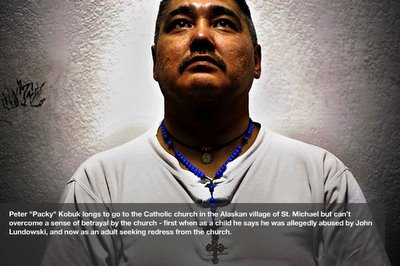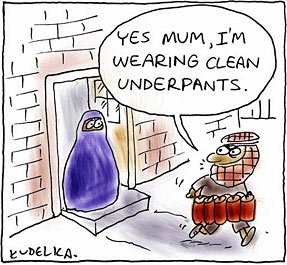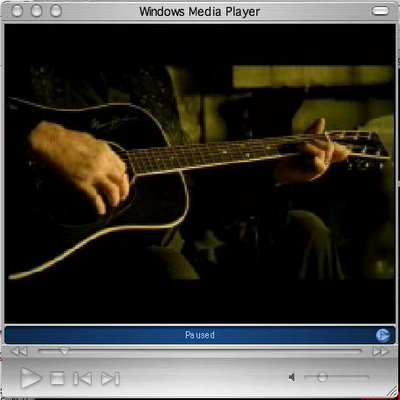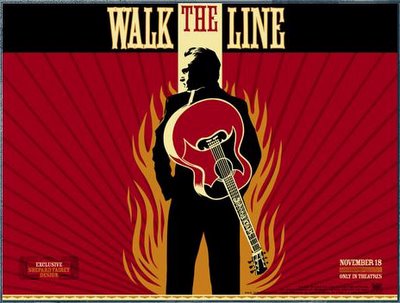When the fallen lead

Revelations like these make one wonder how deep this goes. FWIW, there is a really good book edited by Professor Thomas G. Pante regarding this problem: Bless Me Father for I have Sinned: Perspectives on Sexual Abuse Committed by Roman Catholic Priests.
Missionary's Dark Legacy
Two remote Alaska villages are still reeling from a Catholic volunteer's sojourn three decades ago, when he allegedly molested nearly every Eskimo boy in the parishes. The accusers, now men, are scarred.
By William Lobdell
Times Staff Writer
November 19, 2005

ST. MICHAEL, Alaska — Peter "Packy" Kobuk has to walk past the old Catholic church to get almost anywhere. To fill a drum of heating oil. To take his children to school. To wash his clothes at the only laundromat in this Eskimo village of 370.
"I think about burning it down, but I have to block that out," says Kobuk, 46. "It all comes back to me right away each time I have to see it."
The decaying wood-frame building also haunts John Lockwood, a married father of nine. Its bell tower, which rises above the village's 90 plywood shacks and prefabricated houses, is one of the first landmarks he sees when returning home in a longboat from hunting seals in the Bering Sea.
"It brings back a lot," says Lockwood, whose weathered face reflects a life spent in the Alaska outdoors. "He did all those bad things to us little kids there, and no one did nothing to stop it."

Even after 30 years, the men can't shake their memories of the late Joseph Lundowski, a volunteer Catholic missionary who arrived in their village in 1968.
The devoutly Catholic village elders welcomed Lundowski warmly, as they did all men of the cloth. But the children soon grew to fear and despise him.
Now grown, they said that over a seven-year period, "Deacon Joe" molested nearly every boy in St. Michael and the neighboring settlement of Stebbins.
The alleged victims, now in their 40s and 50s, say they secretly carried this burden until last year. Then, after watching the Catholic sexual abuse scandal unfold on satellite television, 28 men from the two villages decided to break their silence.
"We couldn't tell anyone [before] because no one would believe us," said Kobuk, one of the few St. Michael Eskimos who is still a Catholic. He wears a homemade rosary around his neck, the blue beads held together by string from a fishing net.
"He worked for God, and I was just an Eskimo child."
In 1886, the Jesuits established their first mission in western Alaska. Making converts in this frozen, unforgiving corner of the world proved difficult at first.
For thousands of years, Eskimos' lives as hunters and gatherers had been ruled by Yuuyaaraq, or "the way of the human being." Yu'pik people believed that their elaborate oral traditions and spiritual beliefs helped ward off bad weather, famine and illness.
It wasn't until an influenza epidemic in 1900 wiped out more than 60% of Alaska's native population that the Jesuits began to make headway.
The Eskimo shamans seemed no match for the deadly virus. The spiritual defeat, along with encroaching Western influences, caused entire villages to convert to the new religion.
Today, the Roman Catholic Diocese of Fairbanks stretches across the upper two-thirds of Alaska, a rugged chunk of territory bigger than Texas but with just 41 churches and 24 priests.
Staffing remote parishes such as those in St. Michael and Stebbins with full-time priests has proved impossible, which is why Lundowski and other volunteers played a key role in village ministries.
Just 200 miles below the Arctic Circle, the wind-swept settlements of St. Michael Island sit 12 miles apart on a rugged section of coast where the tundra meets the Bering Sea. They are accessible only by small plane or, when the ice melts on Norton Sound, by boat.
In summer, the island is a place of great beauty. Wildflowers blanket the rolling hills, and the occasional Beluga whale swims among schools of herring and king salmon in the dark blue sea.
In winter, the landscape becomes a white, windy Arctic desert, and even the sea freezes for months on end.
Lundowski arrived in 1968, at the end of a long personal odyssey. An orphan, he was raised in West Virginia by his aunt. During World War II, he served in the Army under Gen. George Patton in North Africa and Europe, former associates said.
After the war, he lived at a Trappist monastery in Oregon and worked as a commercial fisherman in Alaska before volunteering to help Father George Endal, a Jesuit priest, in several Eskimo villages.
Father Endal was responsible for St. Michael, Stebbins and a third settlement, Unalakleet, 45 minutes away by plane. Villagers said that for long stretches of time, he left parish affairs on St. Michael Island in the hands of Lundowski and another lay missionary.
Though Lundowski was never ordained, he assumed the role of a Catholic priest.
Villagers said he wore vestments and held Sunday services, gave homilies, taught catechism, baptized children, officiated at weddings and performed burial services at a hillside cemetery, where digging a grave required breaking through six feet of frozen tundra with picks and shovels.
Lundowski started molesting boys soon after he arrived, according to legal documents. Joseph Steve, a slight, soft-spoken man in his mid-50s, believes he was the missionary's first target.
Then 17 and a devout Catholic, Steve had volunteered to help Lundowski teach catechism classes at St. Bernard Church in Stebbins.
One afternoon, he said, Lundowski asked him to stay after class and wash some dishes. "He sneaked up on me," Steve said. "He pulled my pants down and penetrated me."
"I never finished the dishes," he said.
Lundowski had daily access to the village children, teaching them catechism and holding afternoon recreation sessions in the "monkey rooms," as parish play areas were called.
Kobuk said he attended Lundowski's catechism classes at the St. Michael parish beginning at age 12.
One day, after Kobuk recited the Ten Commandments and sang "This Is the Day the Lord Has Made," Lundowski told him to stay after class. After the other boys left, Lundowski locked the doors and lowered the window shades, Kobuk said.
"I was scared and asked him what he was going to do, and he says, 'You'll see,' " Kobuk recalled.
Kobuk said that Lundowski removed his dentures and performed oral sex on him in the missionary's rectory bedroom. Then Lundowski gave Kobuk a $20 bill — a fortune for an Eskimo boy in 1971 — and told him he was a "special kid," Kobuk said.
Over the next four years, Kobuk said the missionary plied him with altar wine, sodomized him and forced him to engage in sexual acts with other Eskimo children — boys and girls.
Kobuk said that when he threatened to tell, Lundowski told him to go ahead, insisting that no one would believe a child over a man of God. Kobuk said the missionary also threatened to flunk Kobuk in catechism class.
"I was torn between getting my first Communion, the money, the alcohol and the candy, and the molestation," he said.

Another villager, Elias Pete Jr., 43, hung out at the Stebbins church on weekday afternoons and Saturdays through the winter, drawn by the warmth of its oil-burning stove. When he was 9, Pete said, Lundowski performed oral sex on him for the first of many times. Afterward, he said, the missionary gave him 25 cents that he shook out of an Easter Seal donation can.
Nicolas Pete, Elias' 41-year-old uncle, said Lundowski would threaten to take away stars that tracked his progress toward confirmation unless the boy consented to sex.
"When he was all done, he would say, 'You can keep that star,' or 'I'll give you another one.' Silver or blue, those were the high-ranking ones."
Lockwood, 48, of St. Michael, said Lundowski would drag him into the rectory bedroom, digging his meaty fingers into Lockwood's biceps hard enough to leave bruises.
"He'd block the door, and there was no way to fight that big, blubbery guy," Lockwood said.
After one attack, he said, "I showed him the bruises and said I was going to tell. But he just said, 'You're a little kid. People will just think you fell down.' "
The isolated and impoverished Eskimo villages had spotty telephone service and no police officers. But Kobuk and several others said they tried to get help. A few told their parents, who didn't believe them. Three said they reported Lundowski's conduct to Father Endal, who promised to take care of it, though the molestations continued.
Endal died in 1996 and has since been accused of molesting a minor.
"I thought [Lundowski] would get in trouble for what he was doing," said Thomas Cheemuk, who alleged that he was molested as a boy. "I couldn't figure it out. I decided one time to tell somebody, but I couldn't figure who to go to."

The end came without warning. One day, Lundowski was teaching catechism classes to the village boys. The next morning, he was gone.
Jerry Austin, who owned St. Michael's only plane, said an agitated Father Endal approached him one day in 1975 and asked him to fly Lundowski to Unalakleet the next morning.
Austin suggested Lundowski wait until later in the day, when a bush pilot was expected to fly in. "He said it would be too late," Austin recalled.
He said he agreed to make the flight as a favor to the church. "Everyone around here had heard the rumors about Lundowski," Austin said.
The next morning, Lundowski climbed into the single-propeller plane carrying only a small duffel bag. They flew in silence to Unalakleet.
With the missionary gone, most of his alleged victims set about trying to forget.
Like many others, Lockwood turned to alcohol and drugs. Because both villages are dry settlements — a fifth of hard liquor goes for $150 on the black market — Lockwood made "home brew" alcohol, a mixture of yeast, sugar and fruit juice.
"It's not good, but it does the job," Lockwood says.

Thomas Cheemuk got married, raised six children and attempted suicide three times. In 1999, his brother, John "Dunny" Cheemuk Jr., killed himself, a death Tommy attributes to the molestations.
Kobuk vented his rage with a string of assaults — on fellow villagers, a church secretary and his own children. His convictions drew sentences totaling 495 days in jail.
The troubles of Lundowski's alleged victims stood out, even in the Eskimo villages of western Alaska, which have some of the highest rates of alcoholism and drug abuse, domestic violence and suicide in the world.
"They are probably the ones I arrest the most," says Theresa Kobuk, Packy's niece and St. Michael's public safety officer for the last seven years.
H. Conner Thomas, a criminal defense attorney in Nome, says he often wonders why the men of St. Michael Island seemed to have "more than their fair share of significant problems" with the law.
"This may be an explanation," he says.
Packy Kobuk was one of the only Eskimos to talk openly about what had happened. He said he spoke about the alleged abuse with at least nine priests and one nun. On three occasions, he said, he brought it up with Bishop Michael Joseph Kaniecki, who came to the village annually to perform the confirmation ceremonies.
"He would just change the subject," Kobuk said. "He didn't want me to bring it up."
The prelate has since died and church officials said they have no record of any complaints about Lundowski.
One summer evening in 2004, Kobuk saw a television news report about a sexual abuse case against a popular Nome priest. For the first time since the Catholic Church molestation scandals had erupted, someone was taking on the Alaska church.
Kobuk said he began to consider taking legal action himself.
"I wanted everyone to know that there was a lot of us involved, and the abuse happened out here too, and not just in the cities," Kobuk said.
The first lawyer he approached turned the case down, citing a conflict of interest. The rejection hit him hard.
He said he rode his four-wheel Honda ATV to a remote beach where a grizzly bear had been spotted and he followed its tracks in the sand.
"I didn't want to kill myself," Kobuk said. "I wanted an animal to do it."
After a few hours of walking and crying, he had a change of heart.
"I was saying the rosary on the way back," he recalled. "I didn't want that bear to eat me."
A week later, Kobuk saw an advertisement in the Nome Nugget: "Did You Know Joseph C. Lundowski, Also Known as Brother Joe or Deacon Joe?"
The ad read, in part: "You may be able to help several children who were possibly abused. Any information, no matter how small, can help a child seek justice and healing."
Kobuk called the number at the bottom of the ad, placed by attorney Ken Roosa.
A former state sex crimes and federal prosecutor, Roosa signed up his first client in Alaska's clergy sexual-abuse scandal in 2002. Shortly afterward, he was swamped with calls from others who said they had been abused. He brought in John Manly, a Costa Mesa attorney who had helped negotiate a record $100-million settlement for sexual-abuse suits against the Diocese of Orange County.
Since then, 85 Alaska natives from 13 villages have filed claims against the church for alleged abuse by six priests and two lay missionaries from 1956 to 1988.
The flood of allegations has led to speculation that the Eskimo settlements were a "dumping ground" for abusive priests and lay workers affiliated with the Jesuit order, which supplied priests and bishops to the Fairbanks diocese.
"It's like the French Foreign Legion — you join rather than go to prison," says Richard Sipe, a former Benedictine monk who is an authority on clergy sexual abuse and has served as an expert witness in hundreds of cases, including those in the Eskimo villages. "I was absolutely convinced this happened in Alaska."
Father John D. Whitney, chief of the Jesuits' Oregon Province, which includes Alaska, denied that known deviants were shipped there. To the contrary, Jesuit literature portrayed Alaska as "the world's most difficult mission," a prestigious assignment for the most courageous and faithful priests.
"They weren't in exile," Whitney said. "They were looked on as people who were blazing the trail for faith."
Initially, all of the Stebbins and St. Michael men wanted to remain anonymous, agreeing to file suits only under the legal pseudonym "James Doe." That changed when Kobuk came forward and encouraged others to go public as he had.
"I wanted the priests to know they had hurt us," he said, "and not just a bunch of James Does."
Now the men must prove their claims. As victims of clergy sexual abuse across the country have learned, reconstructing events that occurred decades ago in secret is a daunting task. For the Eskimos, the job was complicated by the church's initial insistence that there was no record that Lundowski had ever volunteered for the church.
The villagers and their attorneys dug through church archives, family photo albums and old letters looking for evidence.
Roosa came across a grainy copy of a 1975 church newsletter that listed participants in a training program for deacons in the Diocese of Fairbanks. It included a photo of a bald man with horn-rimmed glasses. The caption read: "Joe Lundowski, 59 yrs., Stebbins."
This was proof that the church had trained Lundowski as a deacon and knew he was serving in Stebbins.
In the same file, Roosa found a 1965 letter by a senior Jesuit stating that the church "should have gotten rid of [Lundowski] a long time ago."
The letter was written three years before Lundowski arrived in St. Michael by Father Jules M. Convert, then in charge of the Jesuits in Alaska, to Father Jack Gurr, chancellor to the bishop of Fairbanks. Convert began by asking for a shipment of food for his men and more nails to complete the building of a village church, but most of the letter was devoted to his concern about Lundowski.
Convert expressed dismay that the bishop in Fairbanks, Theodore Boileau, had moved Lundowski from one village to another after receiving "complaints" about his conduct.
Convert described Lundowski as a church volunteer and wrote that he had forbidden him to use the title "brother" because "it greatly confused the folks."
In his reply, Gurr questioned "why the Mission Superior (i.e., yourself) cannot give 'guidance' to [Jesuit priests and volunteers] on such matters. What would you do if it involved a woman? … You should try to bring the scandal to end…."
Convert replied that he didn't have the authority to remove Lundowski, and that only the bishop could do so.
"He's a lay volunteer, sent by the bishop to Hooper Bay against what he knew to be our thinking of the fellow. I happen to know he's a possible cause of trouble, so I refer him and the case to the proper [church] authorities, for whatever action they see fit to take…."
There is no evidence that church authorities investigated the allegations. Convert himself now stands accused of molesting 20 Eskimo children.
An additional piece of evidence against Lundowski came from one of his alleged victims. The man, who has been diagnosed with schizophrenia and is serving a prison sentence for rape in Alaska, gave the plaintiffs' lawyers a letter Lundowski had written to him in 1993.
The inmate, who asked to remain anonymous, told attorneys that he wrote Lundowski to describe the emotional turmoil he had suffered as a result of the missionary's molestations.
In a handwritten letter with a postmark from Chicago, Lundowski replied: "Your letter came to me as a shock and sadden me as to your condition. It goes without saying that if I am in anyway to blame for your illness, I apologize….
"I pray to God who relieves all illness to comfort you and to restore you to perfect health. Since I left Alaska and came [to Chicago] to work, I have accepted the Lord in a real and personal manner …. I too have suffered. Two years ago I had a heart attack with a stroke and still have limited use of my legs and arms. My prayer for myself every day is for Him to come and take me. I don't write this for sympathy, but to let you see the Lord punishes us in his own ways."
Lundowski spent the final decade of his life as the night switchboard operator at a Christian rescue mission on Chicago's South Side. He died in 1996.
Officials of the Diocese of Fairbanks and the Jesuits' Oregon Province — the two defendants in the Lundowski suits — have asked a Superior Court judge to throw out the claims.
In legal papers, they argue that the statute of limitations on the allegations has run out, and that Lundowski was an unauthorized volunteer not under the supervision of the diocese or the Jesuits.
None of the missionary's 28 accusers in St. Michael and Stebbins — nor the dozen who have filed suit from other villages in which Lundowski previously served — has received a settlement offer.
Bishop of Fairbanks Donald Kettler said the church must find a way to help any victims of abuse, but that money is a problem for his cash-strapped missionary diocese.
Whitney, head of the Jesuits' Oregon Province, said that "we're not culpable for the actions of Mr. Lundowski, who was never a Jesuit. We have a moral responsibility in our role as priests to be part of the reconciliation work of Christ."
Whitney said that reconciliation and healing would come in a relationship with God, and not in a courtroom.
"We've remained faithful to the people in the villages," Whitney said. "We haven't withdrawn or run away. We want to be companions in their pain and healing. We want to know how we can help."
On most Sunday mornings now, the Catholic church in St. Michael is nearly empty.
Packy Kobuk says he longs to go to church but cannot overcome the feeling that the elders there have turned their backs on him twice — once when he was a child and again now.
If the weather is right, he takes long strolls through the village during the church service. On his walks, he sometimes recites the Lord's Prayer or the Apostle's Creed or another of the prayers he learned in his youth, many from Joseph Lundowski.
To the Virgin Mary, he offers his own prayer.
"We need your help," he tells her.
He goes on to pray that wrongdoers will be exposed.
"I want everyone to know what happened to us here," he said. "It's been covered up too long. And I also pray for forgiveness. That's the hardest part."


(Source)







